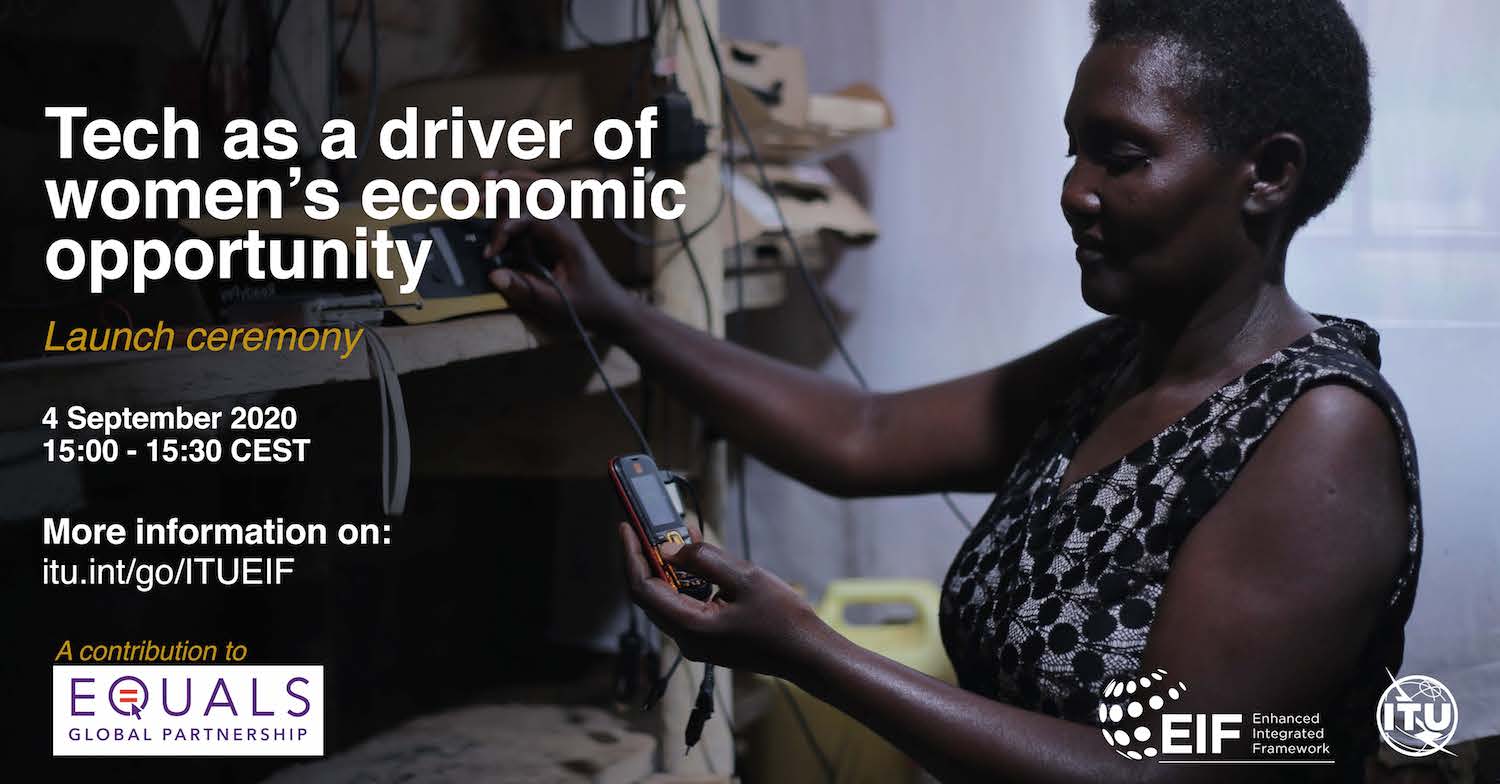
When women and girls have access to the internet and the skills to use information and communications technologies (ICTs), they have the opportunity to start new businesses, sell products to new markets, and find better-paid jobs. Technology plays a key role in building economic opportunities for women around the world. By encouraging girls and women to participate fully in local, regional and global economies, ITU envisions a future where everyone can access and use ICTs productively.
A joint project of EIF and ITU, contributing to the EQUALS Global Partnership
To support the work of maximizing the positive impact of technology for women, ITU and the Enhanced Integrated Framework (EIF) have launched a cooperative project to enhance the digital ecosystem and build digital skills for women in least developed countries (LDC). The project specifically aims to reduce the digital gender gap in Haiti, Burundi and Ethiopia by using technology to drive women's economic opportunities in the textile and apparel industry as well as the coffee and cocoa value chains.
In close cooperation with the EQUALS Global Partnership, the project will work with key public and private stakeholders to address systemic issues that are preventing women from accessing and using digital technologies and being the drivers of positive change that they can be. The project includes improvements to policy and regulatory environments in the three target countries to ensure sustainable national support, as well as inviting open and innovative discussions among key stakeholders.
Further, the project will increase economic and professional opportunities of working-age women by equipping them with digital skills and providing a route to match job market supply and demand. Collaboration with national entities such as cooperatives and business associations, as well as local and regional expert organizations, will increase capacity to provide better ICT services and tools.